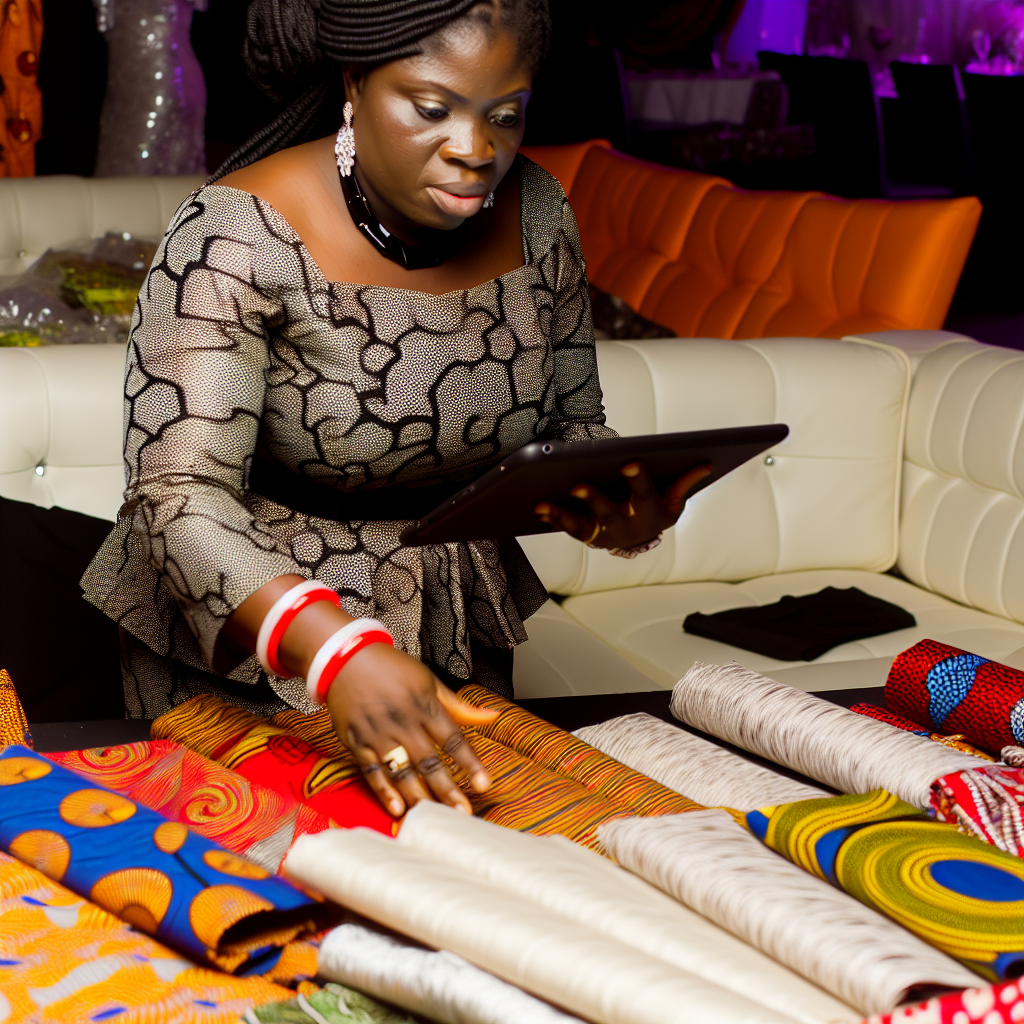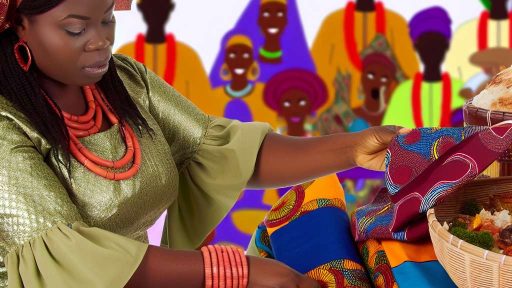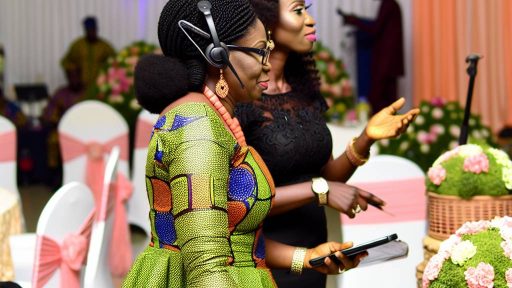Understanding the Significance of Traditional and Modern Wedding Elements in Nigeria
Traditional Wedding Customs
Traditional weddings showcase Nigeria’s rich cultural heritage.
These ceremonies often involve vibrant attire and rituals.
Family plays a crucial role in these traditional events.
Negotiating bride price is a common tradition in many ethnic groups.
Each ethnic group has unique customs and practices in weddings.
This diversity ensures a rich tapestry of wedding experiences.
Modern Wedding Influences
Modern weddings incorporate contemporary elements into traditional practices.
Couples often blend traditions with Western-style ceremonies.
Dresses and suits are often tailored to reflect personal style.
Modern weddings emphasize personalization and creativity.
Most couples now consider destination weddings for their nuptials.
This trend adds a unique twist to the traditional celebration.
Significance of Blending Traditional and Modern Weddings
A hybrid wedding allows for greater cultural representation.
This blend honors both families’ traditions and values.
Guests appreciate the unique fusion of customs and modernity.
It promotes unity and inclusivity among diverse backgrounds.
Additionally, a hybrid wedding can be more festive and enjoyable.
Couples can create a one-of-a-kind experience for everyone involved.
Overall Impact on the Wedding Experience
The combination of traditional and modern elements enriches the celebration.
Guests often participate in diverse and meaningful rituals.
This variety keeps the celebration lively and engaging.
Moreover, the couple’s personalities shine through their choices.
Ultimately, a hybrid wedding reflects the couple’s journey and love story.
Choosing the Wedding Date Considering Cultural and Family Schedules
Planning a wedding date involves multiple factors.
It is essential to consider cultural traditions.
These traditions might dictate specific dates or seasons.
For instance, many families celebrate weddings during harvest season.
This season allows for gathering and celebration.
Additionally, cultural observances might affect availability.
Families may prioritize certain days for spiritual significance.
Thus, understanding these nuances is crucial.
Next, consider family schedules to enhance attendance.
Discuss potential dates with close family members.
Ask about their planned commitments during that time.
Keeping everyone’s schedule in mind fosters goodwill.
Moreover, think about the availability of key participants.
This includes parents, grandparents, and siblings.
These individuals often play significant roles in ceremonies.
In addition, give thought to the timing of holidays.
Holidays can affect travel and accommodation arrangements.
Choosing a wedding date during a holiday may increase enjoyment.
However, it can also complicate logistics.
Ultimately, balancing cultural significance and family needs is vital.
This thoughtful approach ensures a memorable celebration.
By selecting a suitable date, you set the foundation for your wedding.
Setting a Budget
Understanding Key Components
Planning your wedding budget is essential for a successful celebration.
Start by identifying all potential expenses.
Common expenses include venue rental, catering, and décor.
Additional costs may arise from entertainment and attire.
Each component requires ample consideration to prevent overspending.
Balancing Traditional Customs
Nigerian weddings often involve rich cultural traditions.
Consider incorporating traditional elements that reflect your heritage.
Focus on ceremonies, attire, and rituals that resonate with both families.
Allocate a specific portion of your budget towards these traditions.
Contemporary Expectations
Modern weddings often feature unique, personalized elements.
Research trends and preferences that appeal to you and your partner.
Examples include customized decor and modern entertainment options.
Determine which contemporary aspects are most important to you.
Creating a Detailed Budget Plan
Develop a detailed budget spreadsheet for clarity.
List all expenses under the appropriate categories.
Use a percentage-based system to allocate funds effectively.
Prioritize essential items while allowing for flexibility.
Monitoring and Adjusting Your Budget
Review your budget regularly throughout the planning process.
Adjust allocations as new expenses arise or priorities change.
Use apps or budgeting tools to keep track of expenses.
Stay transparent with your partner to avoid misunderstandings.
Enhancing Your Wedding Experience
Successfully balancing traditional customs and modern expectations requires careful planning.
A well-structured budget enhances the overall experience of your wedding.
This approach ensures you honor your heritage while embracing contemporary trends.
See Related Content: Essential Steps to Plan a Nigerian Wedding Without Stress
Selecting a Venue That Accommodates Both Traditional and Modern Ceremonies
Understanding the Importance of Venue Selection
The venue sets the tone for your wedding celebration.
Choosing the right space can enhance both traditional and modern elements.
It should reflect the couple’s unique styles and honor cultural heritage.
Characteristics of an Ideal Venue
A versatile venue can seamlessly transition between ceremonies.
Look for spaces with distinct areas for each type of event.
Outdoor spaces can complement traditional elements beautifully.
Indoor venues should allow for elegant décor changes.
Size and Capacity Considerations
The venue must accommodate your guest list comfortably.
Bear in mind that traditional weddings often have larger attendee counts.
Ensure there is enough space for cultural rituals and modern activities.
Accessibility and Location
Choose a venue that is easily accessible for all guests.
Proximity to accommodations makes it convenient for out-of-town visitors.
Check if the venue has parking facilities or public transport links.
Budget-Friendly Options
Set a realistic budget when selecting a venue.
Explore community centers, gardens, or local halls for cost-effective choices.
Look for venues that offer packages for both types of ceremonies.
Personal Touches and Customizations
Inquire about the venue’s flexibility for personalizing the space.
Work with the venue’s staff to incorporate meaningful décor.
Ensure they can accommodate both traditional and modern setups.
Vendor Collaborations
Locate venues that have partnerships with trusted vendors.
Collaborating with preferred caterers and decorators can simplify planning.
Ask the venue for recommendations that align with your vision.
You Might Also Like: How to Plan a Nigerian Wedding on a Budget Without Sacrificing Style
Incorporating Traditional Attire alongside Modern Wedding Fashion
Choosing the Right Styles
Start by selecting traditional styles that resonate with your cultural heritage.
Consider modern designs that may complement your traditional attire beautifully.
For example, a lace-trimmed wedding gown paired with beaded gele can look stunning.
At the same time, explore traditional men’s attire like agbada or dashiki.
Mixing these styles allows for unique representations of both backgrounds.
Coordinating Colors and Themes
Choose a color palette that reflects both the traditional and modern elements.
Traditional Nigerian weddings often feature vibrant colors, which you should incorporate.
Complement these vibrant hues with more subdued tones in modern attire.
This coordination ensures harmony in the overall look of the wedding party.
Selecting Accessories Wisely
Accessories can make or break the overall wedding attire.
Incorporate traditional items like statement jewelry or unique headpieces.
Modern accessories, like chic shoes and clutches, can balance the look.
For men, consider watches or cufflinks that reflect both styles.
Accessorizing for the Ceremony and Reception
Plan different outfits for the ceremony and reception to highlight both styles.
For the ceremony, wear traditional attire to honor cultural rituals.
During the reception, switch to modern outfits for a contemporary vibe.
This approach allows your guests to appreciate both aspects during the celebration.
Encouraging Guest Participation
Invite your guests to dress in a way that complements your theme.
Share a dress code that encourages traditional attire alongside modern fashion.
This involvement creates a festive and inclusive atmosphere for everyone.
Provide examples or inspiration to guide your guests in their choices.
Find Out More: The Essential Checklist for Planning a Stress-Free Nigerian Wedding
Engaging Family and Community in Planning and Preparation
Importance of Family Involvement
Family involvement enhances the wedding planning experience.
It builds a sense of community and shared responsibility.
Moreover, family members often possess valuable insights.
Engaging them creates a memorable planning journey.
Creating a Planning Committee
Establish a wedding planning committee to organize tasks.
The committee can include close family and friends.
Assign specific roles based on each person’s strengths.
This approach fosters teamwork and collaboration.
Consider having regular meetings to discuss progress.
Inviting Community Participation
Invite members of your community to participate in preparations.
This can range from event planning to logistics management.
Engaging local vendors will strengthen community ties.
Furthermore, this involvement can enhance the wedding’s cultural richness.
Honoring Traditions with Family Input
Consult family members about traditional wedding customs.
This ensures that cultural elements are preserved.
Include parents and grandparents in discussion sessions.
Their stories and experiences can add depth to celebrations.
Collaborative Activities for Bonding
Plan joint activities to promote bonding among family and friends.
Consider cooking sessions for traditional dishes together.
These activities build excitement and unity before the wedding.
Additionally, they help in gathering ideas for decoration.
Regular Communication Channels
Establish regular communication channels with all participants.
This keeps everyone informed about planning progress.
Use group chats or video calls for inclusive conversations.
Encourage sharing ideas and suggestions openly.
Encouraging Flexibility and Creativity
Encourage family members to express their creative ideas.
Flexibility in planning can accommodate various preferences.
Allow room for innovation while honoring traditions.
This balance can result in a unique celebration.
See Related Content: Essential Nigerian Wedding Planning Tips for A Perfect Ceremony

Planning a Cohesive Ceremony and Reception Flow
Understanding the Hybrid Wedding Concept
A hybrid wedding seamlessly combines traditional and modern elements.
This blend reflects the couple’s backgrounds and preferences.
It creates a unique celebration that honors both sides.
Setting a Date for Your Wedding
Choosing the right date is crucial for a hybrid wedding.
Consider cultural significance and family availability.
Your selected date should accommodate both ceremonies.
Choosing the Venue
Select a venue that can adapt to both traditional and modern themes.
Outdoor spaces provide a beautiful backdrop for a hybrid style.
Alternatively, a banquet hall can serve both functions well.
Ceremony Planning
The ceremony should reflect both cultural practices and modern trends.
Incorporate traditional attire for key moments.
However, allow space for contemporary personal vows.
Reception Considerations
The reception should flow seamlessly from the ceremony.
Plan for traditional elements like cultural music and dance.
Then, introduce modern entertainment such as live bands or DJs.
Catering Options
Select a menu that combines traditional Nigerian dishes with modern cuisines.
This approach appeals to diverse guest preferences.
Consider having food stations featuring different culinary styles.
Guest Involvement
Encourage guests to participate in both traditional and modern activities.
Create interactive moments, like traditional blessings or modern games.
This engagement enhances the overall experience for everyone.
Decor & Ambiance
Choose decorations that harmonize traditional aesthetics with modern flair.
Incorporate cultural symbols alongside contemporary design elements.
Use lighting creatively to highlight both themes.
Photography and Videography
Hire professionals familiar with both traditional and modern weddings.
Ensure they can capture the essence of your hybrid celebration.
Discuss key moments you want documented from each style.
Final Touches
Incorporate personal elements unique to your relationship.
Consider personalized favors that reflect both cultures.
Lastly, ensure that every detail flows smoothly on the big day.
Choosing Vendors
Finding Photographers
When planning your hybrid wedding, start by finding skilled photographers.
Seek those who understand both traditional and modern styles.
Look for portfolios that reflect versatility and cultural sensitivity.
Many photographers offer packages for diverse weddings.
Don’t hesitate to interview them about their experiences.
Ask for references from previous clients who had similar weddings.
Selecting Caterers
Choosing the right caterer is crucial for a successful celebration.
Find caterers who can blend traditional Nigerian dishes with modern cuisine.
Request sample menus to evaluate their offerings.
Ask about their experience with hybrid weddings specifically.
Ensure they can accommodate dietary restrictions from both cultures.
A good caterer will suggest innovative ways to present food.
Hiring Decorators
Decorators set the mood for your wedding day.
Look for those experienced in combining traditional and modern aesthetics.
Discuss your vision and preferences during initial consultations.
Review portfolios showcasing successful hybrid wedding setups.
Collaboration between you and the decorator is key.
Ensure they can source items that honor both heritages.
Planning a Wedding Timeline
Understanding Key Rituals
Every Nigerian wedding combines unique cultural traditions and modern elements.
Begin by identifying essential traditional rituals.
Examples include the bride price negotiation and the engagement ceremony.
Each ritual holds significant cultural meaning and should be well-planned.
Incorporating Modern Celebrations
Now, consider how to integrate modern wedding trends.
Plan for a stylish reception that reflects contemporary themes.
Whether it’s a destination wedding or an elegant banquet hall, make choices that resonate.
Modern elements can include a DJ, live music, and themed decor.
Creating a Detailed Timeline
Craft a detailed timeline that accommodates both traditional and modern events.
Start with the traditional rituals, ensuring proper timing for each.
Allocate enough time for the couple to interact with their guests.
Next, plan the transition to modern festivities, like the reception.
Sample Wedding Day Schedule
- Morning: Traditional rituals, including the bride price negotiation.
- Afternoon: Engagement ceremony with family and friends.
- Evening: Modern reception with dinner, dance, and performances.
Involving Family and Friends
Encourage family input on traditional elements.
Involve friends in planning modern aspects, ensuring everyone contributes.
This collaboration fosters unity and creates a memorable experience.
Final Touches for a Seamless Day
Review the timeline a week before the wedding.
Ensure vendors are aligned with the plan.
Prepare a backup plan for unexpected situations.
This preparation allows you to enjoy the celebration worry-free.
Navigating the Logistics of Guest Lists, Invites, and RSVPs for a Hybrid Wedding
Understanding the Hybrid Wedding Concept
A hybrid wedding combines both traditional and modern elements.
This format caters to various guest preferences and safety needs.
Therefore, planning requires careful consideration of guest lists.
Creating the Guest List
Begin by listing everyone important to you and your partner.
Divide the list into two sections: in-person and virtual guests.
Consider family dynamics and essential connections in each group.
This approach simplifies invitations and RSVPs.
Sending Invitations
Choose a design that reflects both traditional and modern aesthetics.
Digital invitations are eco-friendly and cost-effective.
Similarly, printed invitations can add a personal touch for in-person guests.
Clearly indicate the hybrid nature of the event on all invites.
Managing RSVPs Efficiently
Utilize online RSVP tools for tracking virtual and physical guests.
Encourage guests to respond by a set date to confirm attendance.
Include specific requests based on their attendance method.
Communicating with Guests
Keep communication transparent and informative throughout the planning process.
Use group chats or social media pages to provide updates.
Encourage guests to ask questions anytime to ease concerns.
Finalizing Arrangements
Compile the final guest list ahead of the wedding date.
Check all technology supports seamless virtual attendance.
Plan an in-person layout that accommodates social distancing if necessary.
Additional Resources
Vibrant Multicultural Wedding Beautifully Blends Traditional Hindu …




